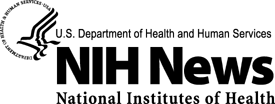
Therapeutic hypothermia offers no significant benefits for infants or children after in-hospital cardiac arrest
WHAT: In a multicenter, international study of infants and children who suffered cardiac arrest while in the hospital, NIH-funded researchers have found that body cooling, or therapeutic hypothermia, is no more effective than actively keeping the body at a normal temperature, or therapeutic normothermia.
The study is the first to look exclusively at in-hospital cardiac arrests in infants and children in order to compare the two temperature treatments. Earlier trials involving adults who went into cardiac arrest outside of a hospital had found that therapeutic hypothermia improved survival and brain function. However, recent trials in adults and children did not find such improvements when compared with patients whose temperature was actively maintained in a normal temperature range to prevent fever.
Current guidelines recommend either treatment for out-of-hospital cardiac arrests in children, as both methods have resulted in equal rates of survival and prevention of brain injury. But out-of-hospital cardiac arrests have different causes and outcomes than in-hospital ones, and the findings of the new study could inform new guidelines for treatment of the latter.
The study included 329 patients between the ages of 2 days and 18 years old who had sustained cardiac arrest while in a hospital. The researchers randomly divided them into two groups and found that children in the group treated with therapeutic hypothermia had the same survival rates and neurobehavioral functioning a year later as those treated by keeping the body at normal temperature.
The research—funded by the National Heart, Lung, and Blood Institute (NHLBI), part of the National Institutes of Health—was presented at the annual meeting of the Society for Critical Care Medicine and published simultaneously in the January 24 issue of the New England Journal of Medicine.
The study is part of the Therapeutic Hypothermia after Pediatric Cardiac Arrest (THAPCA) trials, the largest examination to date of therapeutic hypothermia in children other than newborns for any health condition.
WHO: Jonathan R. Kaltman, M.D., medical officer in the Heart Development and Structural Diseases Branch in the Division of Cardiovascular Sciences at the National Heart, Lung, and Blood Institute (NHLBI), is available to comment.
ARTICLE: F Moler et al. Therapeutic Hypothermia After In-Hospital Pediatric Cardiac Arrest in Children. New England Journal of Medicine. DOI: 10.1056/NEJMoa1610493
CONTACT: For more information or to schedule an interview, please contact the NHLBI Office of Science Policy, Engagement, Education, and Communications at 301-496-5449 or nhlbi_news@nhlbi.nih.gov (link sends e-mail)
